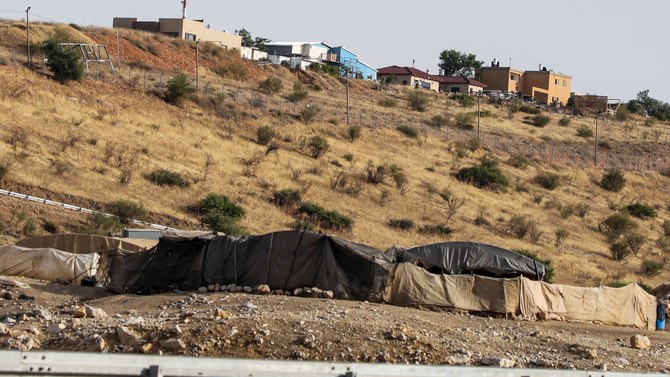
Street demonstrations continue in the Palestinian camp of Ain al-Hilweh (east of Sidon, southern Lebanon) in protest against the decision of the Lebanese Minister of Labor, Kamil Abu Sleiman, regarding the necessity for the Palestinians to obtain work permits, similarly to other foreign workers in Lebanon.
“The situation is tragic,” Mahmoud Shuaib, a shopkeeper at one of the camp’s entrances, told Asharq Al-Awsat. “The minister’s decision helped raise the unemployment rate to more than 60 percent. Most Palestinians also work in construction. This sector is paralyzed after housing loans were stopped. If there is work, it is seasonal and for a short time,” he added.
The population of Ain el-Hilweh is around 60,000. The biggest problem they currently face is the shrinking of UNRWA services.
In the hospital sector, a patient must pay between 10 and 15 percent of the doctor’s bill and 40 percent of the hospital total fee. Schools are experiencing unprecedented overcrowding, with approximately 50 pupils per class.
Residents in the camp also complain about what they see as “harassment” against them. “If we go out and in 10 times a day, we have to show our card and be thoroughly inspected,” Abu Alaa told Asharq Al-Awsat, adding that the strict control did not exclude patients and wounded who must be rushed to hospitals.
Many goods are not allowed to be transferred inside the camps, mainly construction material. Abu Alaa said that most buildings were more than 50 years old and needed repair and maintenance. The entry of electrical and household items require transactions and papers from the Mukhtar and the Lebanese Army Intelligence, he added.
Some residents blamed the employers for the current labor permit crisis, whom they accused of attempting to evade the application of laws, the declaration of workers, and the payment of their obligations to the social security.
They pointed out that the implementation of the law would be beneficial for them if they received guarantees and end-of-service compensations, and if they were “treated as residents and not as foreigners.”
However, the security aspect remains the most dangerous problem in Ain al-Hilweh.
“The camp’s tragedy started with the Syrian-Lebanese security system taking control of it,” said Fouad, a young refugee. “We handed over our weapons after the Taif Agreement. We were surprised by the return of more weapons with extremist organizations that we don’t know how they spawned and how they received funding.”
He went on to say: “Wanted men enter and leave uncontrolled; they come from Tripoli (northern Lebanon), go to Syria, and then return to Ain al-Hilweh. It is tangible. The area was controlled by the Syrian regime while in Lebanon, and the Iranians stepped into the scene.”











